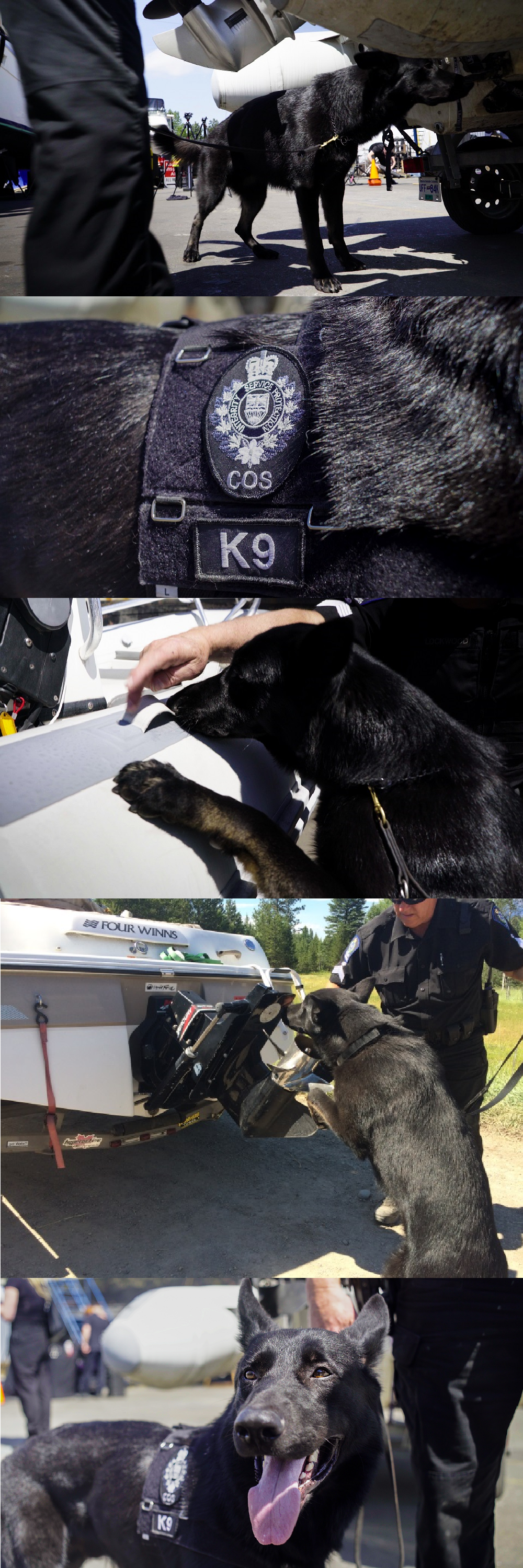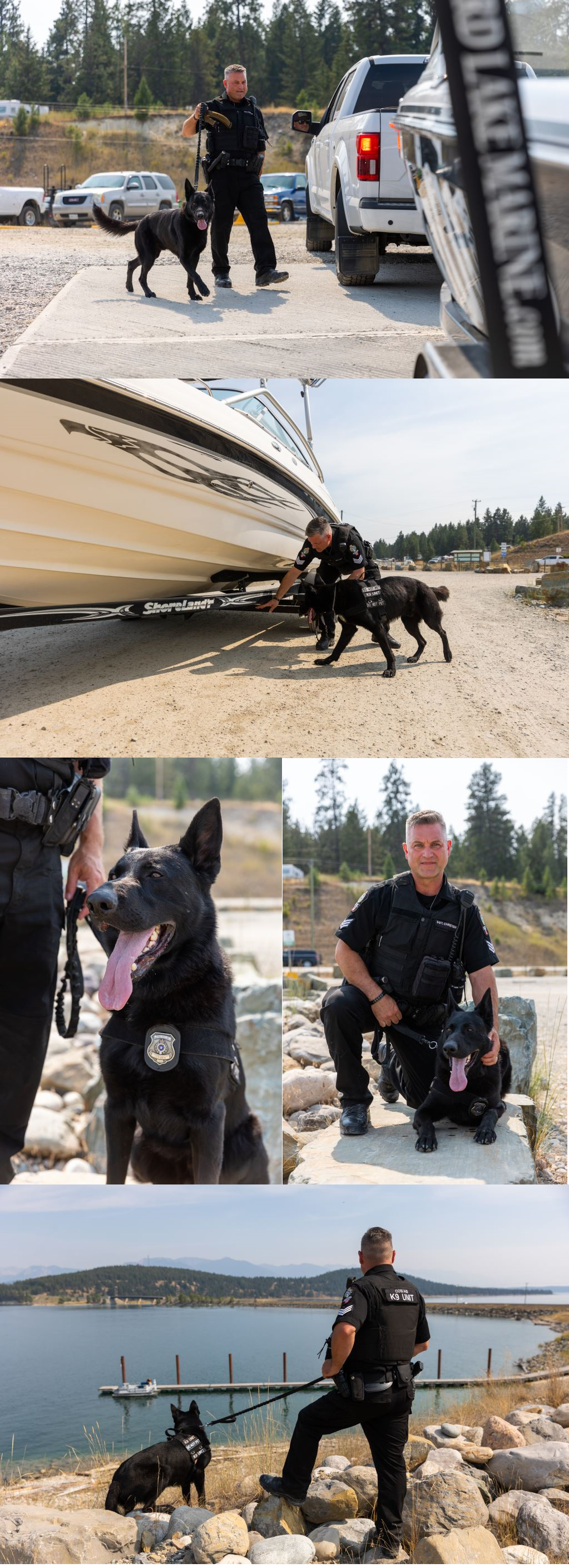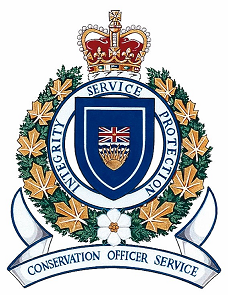Invasive Mussel Defence Program
The B.C. Invasive Mussel Defence Program’s goal is to prevent the introduction of zebra and quagga mussels (ZQM) into B.C. The program’s prevention efforts are focused on inspecting boats, monitoring lakes, educating the public and coordinating actions with neighbouring jurisdictions.
The Invasive Mussel Defence Program (IMDP) was created in 2015 and has three main components:
- A watercraft inspection program to detect and respond to high-risk watercraft potentially transporting invasive mussels into B.C. from infested lakes or rivers
- Lake monitoring to confirm the continued absence of invasive mussels in B.C. waters
- Outreach and education to educate people and change behaviour by promoting the message of "clean, drain, dry" to the boating community, in collaboration with partners
Provincial legislation gives the Province authority to take action on ZQM. The Controlled Alien Species (CAS) Regulation under the Wildlife Act is the principle legislation that defines, lists, and affords provisions to regulate invasive mussels in B.C.
Under the CAS Regulation, prohibitions apply to any mussel listed in Schedule 4 (Zebra, Quagga, and Conrad’s False Mussel). Specifically, it is illegal for a person to:
- possess, breed, ship, or transport prohibited mussels
- release prohibited mussels into B.C. waters
- allow a prohibited mussel to be released or escape into B.C. waters
Inspectors are trained in the watercraft inspection program and have been designated as auxiliary conservation officers under the Environmental Management Act. This designation provides powers to stop, inspect, search, question, and give decontamination orders. See the Zebra and Quagga Mussel Early Detection and Rapid Response (ZQM EDRR) Plan (PDF) for more information on the CAS Regulation and ZQM.
2015-2023 Watercraft Inspection Seasons
The provincial Invasive Mussel Defence Program was launched in 2015. The Ministry of Water, Land and Resource Stewardship (WLRS) delivers the IMDP in partnership with the Ministry of Environment and Climate Change Strategy’s Conservation Officer Service (COS). The IMDP would like to recognize the support provided by program’s founding partners: the Columbia Basin Trust, the Columbia Power Corporation, BC Hydro and Fortis BC that makes this program possible. The annual program workplan incorporates ongoing feedback from partners, the public, and jurisdictions across western Canada and the United States to ensure funding allocations maximize program effectiveness. Results and lessons learned from previous inspections seasons are available in the Program reports posted below.
|
|
2015 |
2016 |
2017 |
2018 |
2019 |
2020 |
2021 |
2022 | 2023 |
|---|---|---|---|---|---|---|---|---|---|
|
Inspection Stations |
Roving |
8 |
10 |
12 |
12 |
9 (2 roving) |
7 (2 roving) |
6 (2 roving) | 6 (2 roving) |
|
Number of Inspectors |
12 |
32 |
65 |
64 |
64 |
37 |
45 |
32 | 43 |
|
Hours of Operation |
5 days/week, 7 hrs/day |
7 days/week, 10 hrs/day |
9 stations dawn-dusk, 7 days/week; |
5 stations dawn-dusk; |
4 stations dawn-dusk; |
9 stations dawn to dusk, 10hrs/day |
Dawn to dusk; 10 hrs/day; 1 station 24 hrs |
10hrs/day; dawn to dusk | 10hrs/day; dawn to dusk |
|
Inspection Season |
June to October |
April to Sept/Oct |
April/June to mid-November |
March/May to late October |
March/May to late October |
May 15 to October 25 |
April/May to Oct |
April/May to Oct | March to December |
|
|
2015 |
2016 |
2017 |
2018 |
2019 |
2020 |
2021 |
2022 | 2023 |
|---|---|---|---|---|---|---|---|---|---|
|
Total Watercraft Inspected |
4,350 |
24,500 |
35,500 |
40,700 |
52,000 |
29,900 |
33,300 |
20,100 | 20,900 |
|
Number of People Interacted With |
~10,000 |
~50,000 |
72,300 |
78,600 |
95,000 |
55,900 |
61,600 |
36,400 | 39,300 |
|
High Risk Inspections |
70 |
685 |
2,071 |
1,652 |
1,290 |
158 |
244 |
122 | 155 |
|
Mussel Fouled Boats |
15 |
17 |
25 |
25 |
22 |
16 |
17 |
13 | 14 |
Resources
2024
- 2024 Invasive Mussel Defence Program Interim Final Report
- 2024 Invasive Mussel Defence Program Summer Status Report (PDF)
2023
-
2023 Invasive Mussel Defence Program Interim Final Report (PDF)
-
2023 Invasive Mussel Defence Program Summer Status Report (PDF)
2022
- 2022 Invasive Mussel Defence Program Interim Final Report (PDF)
- 2022 Invasive Mussel Defence Program Summer Status Report (PDF)
- 2022 Invasive Mussel Defence Program Final Report (PDF)
2021
- 2021 Invasive Mussel Defence Program Summer Status Report (PDF)
- 2021 Invasive Mussel Defence Program Interim Final Report (PDF)
- 2021 Invasive Mussel Defence Program Final Report (PDF)
2020
- 2020 Invasive Mussel Defence Program Summer Status Report (PDF)
- 2020 Invasive Mussel Defence Program Interim Final Report (PDF)
- 2020 Invasive Mussel Defence Program Final Report (PDF)
2019
- 2019 Invasive Mussel Defence Program Spring Status Report (PDF)
- 2019 Invasive Mussel Defence Program Summer Status Report (PDF)
- 2019 Invasive Mussel Defence Program Interim Final Report (PDF)
- 2019 Invasive Mussel Defence Program Final Report (PDF)
2018
- 2018 Invasive Mussel Defence Program Spring Status Report (PDF)
- 2018 Invasive Mussel Defence Program Summer Status Report (PDF)
- 2018 Invasive Mussel Defence Program Interim Final Report (PDF)
- 2018 Watercraft Inspection Season Final Report (PDF)
2017
- 2017 Invasive Mussel Defence Program Mid Season Status Report (PDF)
- 2017 Invasive Mussel Defence Program Fall Status Report (PDF)
- 2017 Invasive Mussel Defence Program Interim Final Report (PDF)
- 2017 Watercraft Inspection Season Final Report (PDF)
2016
- Monthly Status Reports: May (PDF) / June (PDF) / July (PDF) / August (PDF) / September (PDF) / Final Status Report (PDF)
- 2016 Watercraft Inspection Season Final Report (PDF)
2015
- 2015 Watercraft Inspection Season Final Report (PDF)
- 2015 Zebra and Quagga Mussel Early Detection Rapid Response Plan (PDF)
Program Funders

Aquatic Invasive Species K9 Unit
In 2017, the program started the Aquatic Invasive Species K9 unit. The first of B.C.’s multipurpose detection dogs was Kilo. The primary handler of Kilo is Sergeant Dan Bartol within the Conservation Officer Service (COS). Kilo is trained to detect invasive mussels, firearms and bear parts, and helps in evidence recovery cases within the Conservation Officer Service.
In the fall of 2018, a second multipurpose detection dog, called Major, joined the K9 unit. Major is a German shepherd whose primary handler is Sergeant Denny Chretien. These dogs are valuable tools for detecting invasive mussels on watercraft travelling through and into B.C.
 |
 |

